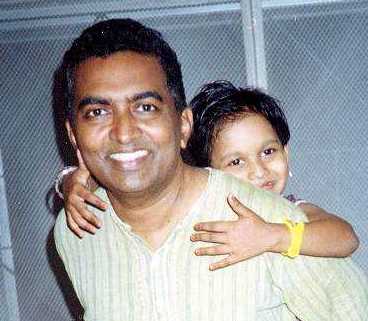Hegel and Consciousness
Georg Wilhelm Friedrich Hegel’s Phenomenology of Mind is considered as one of the greatest works on philosophy, and more pointedly on consciousness. This work is most beautifully summarised by Paul Trejo (See http://eserver.org/philosophy/hegel-summary.html). In ten-odd pages Trejo captures for the impatient reader the essence of Hegel’s tracking of human consciousness.
Wrestling with consciousness meets humans' most basic yearning. It explains why things are and it point out how things should be. It grounds us in reality while it points us to the grandeur of human thoughts and human potentialities.
Inquiry into consciousness also halts us to make us ponder of the limitations of thought and asks us to seek meaning in experiences. Then suddenly, it questions the wisdom of experience too and throws us back to realm of human imagination. It plays ping pong with us. It argues for the past and yet gives us an inkling of how pregnant with possibilities the future is. In short, wrestling with consciousness makes us go in all directions and finally makes us settle for one direction to explain ourselves and the world around us. But we know that this explanation is as ephemeral and tentative as a cloud that passes over the hot April sky in the Indian Plains never to give a drop of water... but that would return a few months later with abundant outpouring of tiring rain.
Evolution of consciousness cannot be chronologically ordered. Hegel never attempted to do this. But he wove into his writing the consciousness of the coexistence of the enlightened and of the commoner at any point in time. Yet Hegel showed a semi-historical sensibility. It appears that he thought that “the finest consciousness that human are capable of has already been conceived or “conscioussed” yet the movement of human consciousness is a grand evolutionary process.
Hegel wrote nearly 200 years ago. Much has happened since then. And much has happened to human consciousness since then. Assume of for a moment Hegel coming back and treating us to an addendum to his book in the light of what has happened in the last two hundred years. In the next few paragraphs, I have tried to write how a summary of such addendum would look like.
Please treat this as a spontaneous outpouring and an expression of gratitude to Hegel and Trejo.
To make sense of the following first please read http://eserver.org/philosophy/hegel-summary.html
Summary by KS of what Hegel would write as an extension to his “Phenomenology of Mind”
Enlightenment and Reformation brought with it a scientific temper. A new class of individuals emerged whose work was it to study nature within laboratories. The origin of diseases, the taxonomies of physical substances that surround us, the nature of basic elements, constituents of salt, water and earth were established. A new SCIENTIFIC CONSCIOUSNESS emerged.
With this also came the Industrial revolution. Organised work by human, aided by individual inventions could achieve almost anything. In the world without, only the occasional fury of nature reminded human of their infallibility. Anything could be done. Seas were connected by canals, stupendous rivers were made inconsequential by bridges, terrestrial space became no constraint with high-rise buildings, space and time was conquered with man’s ability to fly. The INDUSTRIAL CONSCIOUSNESS had taken root in humans.
The spirit of adventure and conquest of nature also brought with it a feeling that man is the master of his destiny. Conquests followed. This time not for reasons of kingly ambitions, but ambitions of conquering resources and resultant economic benefits. The world had shrunk. Trade and commerce flourished. This was the emergence of ECONOMIC CONSCIOUSNESS. Along with this also came the need for huge financial resources to carry out grandiose plans. Need for capital and efficient use of capital brought a new regal class called capitalists. The movement from farming to trade and commerce also required massive labour force. The tension between capitalists and labour brought in a new consciousness - the WORKING CLASS CONSCIOUSNESS.
The conflict between the capitalists and the working class has strong political implications. From this arose the dominant political tensions of the twentieth century. The development of science and technology and dominant political ideology created the doctrine of balance of terror. Nuclear bomb was invented. A new fear was felt by all, far from the source from the fear that our ancestors felt. The NUCLEAR BOMB CONSCIOUSNESS emerged.
But huge sections of the world were too impoverished with poverty, their daily lives occupied by concerns of immediate everyday living. World population doubled and trebled. The richer half is beginning to realise that Ecology has been the victim both from the population angle and the opulence angle. This is the beginning of the ECOLOGICAL CONSCIOUSNESS. Ecological consciousness also evoked the archetype of mother earth. This, together with the women fighting for suffrage and equal treatment in society has created and is continuing to create WOMAN EMPOWERMENT CONSCIOUSNESS.
The post-industrial revolution is now seeking cleaner air, cleaner water, a skyline without chimneys and a downtown without dilapidated manufacturing units and open drains. The manufacturing sector is now giving way to the service sector. The SERVICE ECONOMY CONSCIOUSNESS has emerged. Aided by computers and other artefacts of the cyber-world the world is seeming to shrink.
The old tensions have died and have given way to new tensions. How to balance between poverty and plenty, comfort and ecology, how to balance between individual autonomy and mutual interdependencies, how to balance between home and work, how to balance between local versus global issues are the stuff of current day conflicts. A POST MODERN CONSCIOUSNESS has emerged.
New consciousness is the stuff growth is made of, not hastily rustled-up solutions!
Wednesday, March 09, 2005
Subscribe to:
Comments (Atom)
